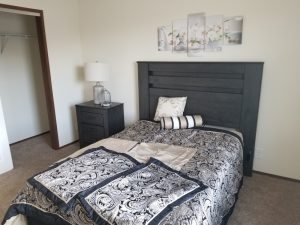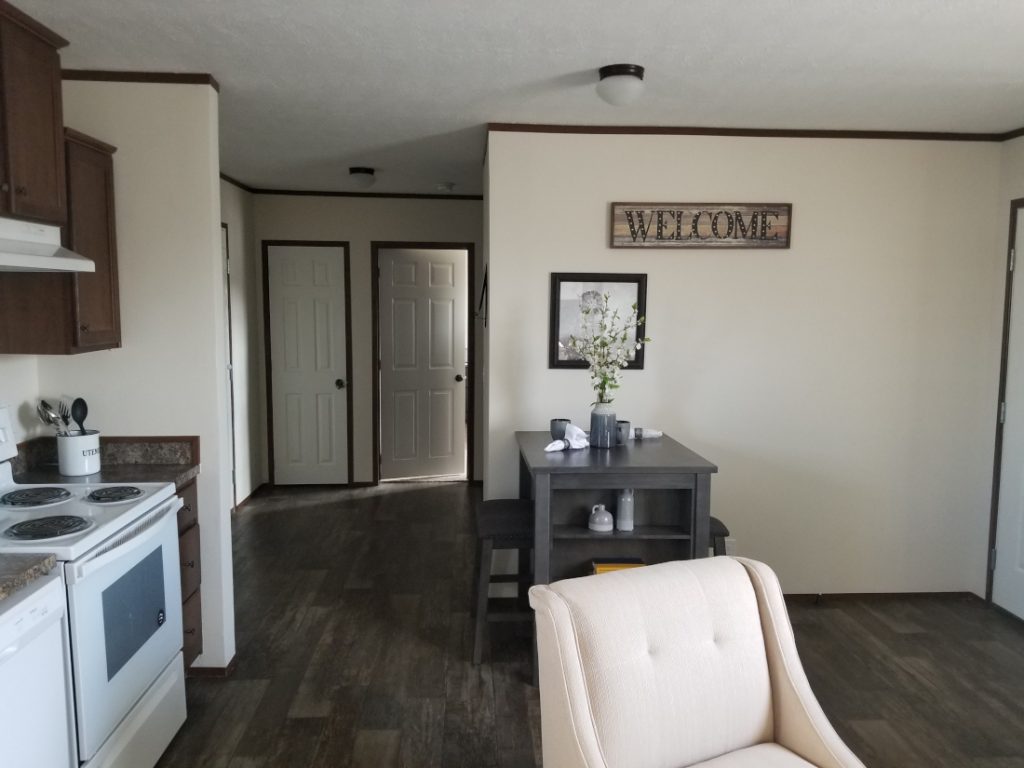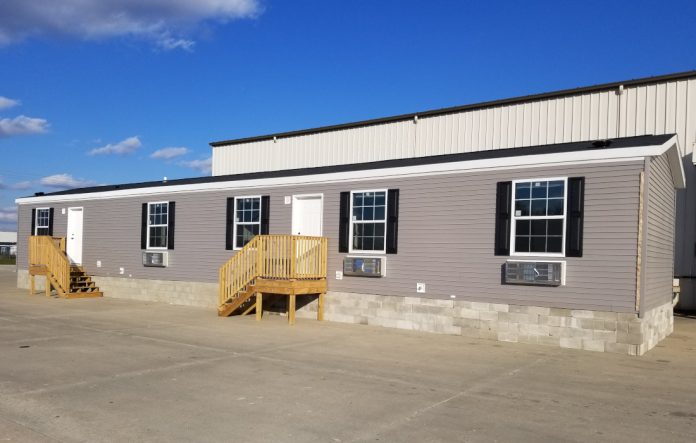MH-inspired Modular Homes in Demand for Campuses, Workforce Housing, Communities
The manufactured housing industry is at it again, bringing new concepts in housing to the forefront. And this time, Adventure Homes has a hunch that its “two is better than one” concept will find success in communities, at worksites, and on college campuses.
 Duplex homes, as the Indiana-based company sees them, use a HUD code envelope. However, the homes are built to modular specifications and provide a pair of residences rather than one.
Duplex homes, as the Indiana-based company sees them, use a HUD code envelope. However, the homes are built to modular specifications and provide a pair of residences rather than one.
“We have a prototype that has a one-bedroom and a two-bedroom residence in a 16 by 76’ envelope, and a duplex sectional that has a pair of two-bedroom residences in a 28 by 64’ envelope,” said Rich Rice, general manager of Adventure Homes.
Though the homes work within a manufactured home envelope, Rice said, they have to be built to modular specifications because HUD-code calls for its homes to be single-family residences.
Rice said duplex homes offer the company’s customers “another wrinkle, another approach” in factory-built housing.
Where Do Modular Duplexes Go?
Rice said he and the production team at Adventure envisioned a place for the new factory-built duplex homes on college campuses and at or near large worksites in rural settings, where housing stock is short or nonexistent.
However, the potential for duplex housing in manufactured home communities also has been broached with industry leaders and the state of Ohio. In the fall, Adventure Homes organized a meeting with the Ohio Department of Commerce that included UMH Properties, a large regional owner and operator of communities, as well as the Ohio Manufactured Homes Association.
“We are pursuing mods in communities both in Ohio and in Indiana with both existing state statues and new legislation,” Rice said. “The Indiana Association is drafting new legislation and we have verbal commitments from more than one legislator to help sponsor a bill. Minnesota already has statues that allow modular coded homes in communities,” Rice said.
In late November, the Ohio Department of Commerce announced that modular homes would be allowed in the state’s manufactured home communities. Part of that announcement included provisions for inspection and approval by a local housing authority as it pertains to local modular code and site-built additions.

Modular homes are permitted in Ohio manufactured home communities under the following guidelines:
- The manufacturer’s plans for the modular homes are approved through the Ohio Board of Building Standards’ (BBS) Industrialized Unit Program.
- Modular homes are placed on a non-manufactured housing lot in a manufactured home park.
- The development plans for placing the modular home in the park are approved by the Ohio Department of Commerce Division of Industrial Compliance (DIC).
Rice said suitable financing for modular homes placed in a community still needs to be worked out, which could take until mid-2020. The company also has been in talks with a community in Champagne-Urbana, Ill., whose owners are open to the concept and are willing to work on the effort in Illinois. Rice said officials in that part of Illinois have cited a rapid increase in enrollment at area colleges as a primary need for new, readily available affordable housing.
“We’re going to have to work out each eventuality and figure out where the speed bumps are, and work our way around it and keep moving forward,” Rice said of lending questions and particulars with various local governments. “If everyone is on this, we should be able to get it done.
“We’re seeing the old adage change, the prejudices (against factory-built housing) start to disappear because local governments are beginning to see this more clearly as the solution to their housing dilemma,” he said.
Bringing New Modular Duplexes to the People
Rice said, as with anything new, the company will manage the ebb and flow of negotiations on the concept. The two duplex homes are among the seven Adventure Homes put on display at The Louisville Show.
“We have 220 people who absolutely have a passion for what we’re doing here, and it’s our job to take it outside the walls,” Rice said. “It’s going to be a learning process, and we’ll all adjust.”










